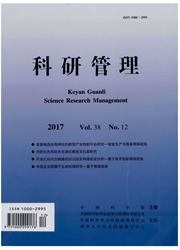

 中文摘要:
中文摘要:
企业的资源联合广泛地作为一个关键启用因素被认出到新冒险幸存和生长,但是资源怎么并且为什么是综合的遗体逃犯。从资源联合的理论借由 Sirmon, Hitt 和爱尔兰(2007 ) 求婚了,这研究以经验为主地检验环境无常怎么影响企业的资源联合。我们也在在环境无常和企业的资源联合之间的关系上检验有效灵活性的调停的效果看新冒险怎么利用灵活性抵销环境无常的威胁。企业的自我功效的节制的效果也被检验看企业家自我认知怎么影响这些关系。从 287 新冒险检验数据,我们发现环境精力和环境敌视在企业的资源联合(联合的包括的企业的资源结合和企业的资源) 上有显著地积极的影响。我们也发现灵活性调停在环境无常(包括的环境精力和环境敌视) 和企业的资源联合之间的关系。实验研究也证明企业的自我功效断然节制在环境精力和灵活性之间的关系,但是否定地节制在环境敌视和灵活性之间的关系。理论、实际的含意被讨论。
 英文摘要:
英文摘要:
Entrepreneurial resource combination is widely recognized as a key enabling factor to a new venture's survival and growth, but how and why resources are integrated remain elusive. Borrowing from the theory of resource combination proposed by Sirmon, Hitt and Ireland (2007), this study empirically examines how environmental uncertainty impacts entrepreneurial resource combination. We also examine the mediating effect of effectual flexibility on the relationship between environmental uncertainty and entrepreneurial resource combination to see how new ventures utilize flexibility to neutralize the threat of environmental uncertainty. The moderating effect of entrepreneurial self-efficacy is also examined to see how entrepreneurs' self-cognition affects these relationships. Examining data from 287 new ventures, we find that both environmental dynamism and environmental hostility have significantly positive influence on entrepreneurial resource combination (including entrepreneurial resource cohesion and entrepreneurial resource coupling). We also find that flexibility mediates the relationship between environmental uncertainty (including environmental dynamism and environmental hostility) and entrepreneurial resource combination. Empirical studies also show that entrepreneurial self-efficacy positively moderates the relationship between environmental dynamism and flexibility but negatively moderates the relationship between environmental hostility and flexibility. Theoretical and practical implications are discussed.
 同期刊论文项目
同期刊论文项目
 同项目期刊论文
同项目期刊论文
 期刊信息
期刊信息
